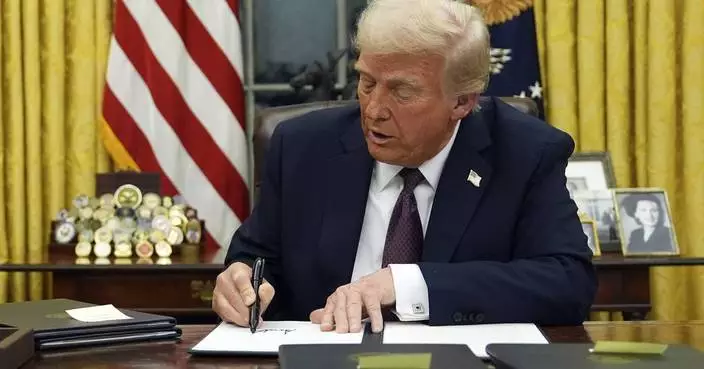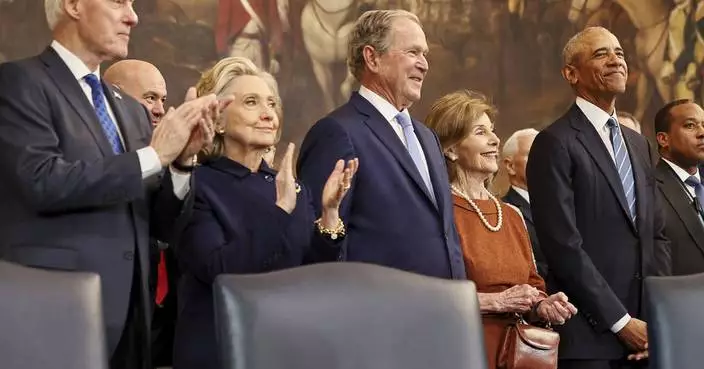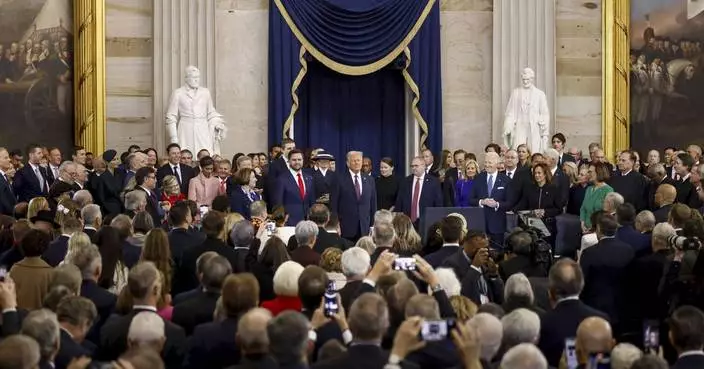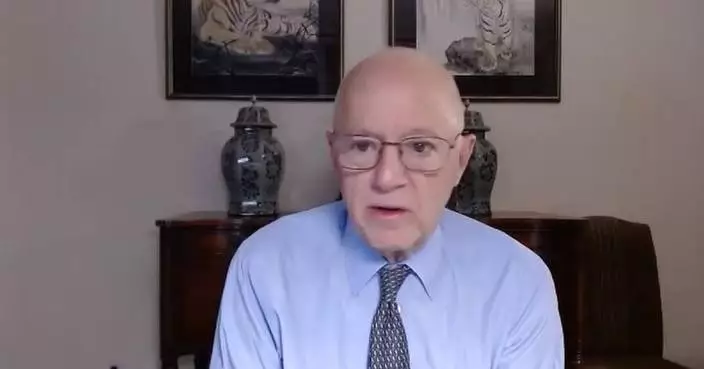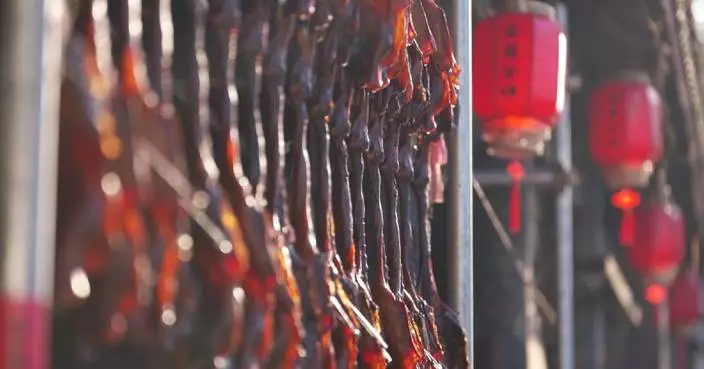ADDIS ABABA, Ethiopia (AP) — The prices on the menu have been erased at a small hotel in a suburb of Ethiopia's capital.
That was no mistake, the waiters said, as businesses in Addis Ababa struggle to keep up with spiraling inflation since the government implemented a flexible exchange rate policy late last month.
Since then, the Ethiopian birr has lost 60% of its value against the dollar as of Monday, sparking anxiety as customers are forced to pay more for basic commodities and some businesspeople are hoarding.
The menus at the Samra Hotel in Bole, a leafy suburb of Addis Ababa, captured the instability: There's a new price for every meal at any moment.
“Previously, prices would be updated bimonthly but nowadays it’s on a daily basis, if not by the hour, to reflect the changing landscape of the market," said Rahel Teshome, who works at the hotel.
Many supermarkets in Addis Ababa are hoarding products in warehouses and only selling small quantities in their stores to escape punishment by city authorities, who have vowed to crack down on hoarders. Consumers who want to buy in bulk must pay inflated prices for products they are told to pick from warehouses.
In Merkato, the capital's biggest open-air market, guards are stationed in an attempt to keep businesses from raising prices. Last week, police officers raided some warehouses and confiscated 800,000 liters (210,000 gallons) of edible oil they later distributed to local cooperatives, which offered it at previous prices. More than 3,000 stores accused of hoarding have been shuttered across the country.
The Addis Ababa City Trade Bureau has warned that more actions will be taken against people who take advantage of the floating of the birr to hike prices.
The new exchange rate policy was a historic decision in a country where the government for decades fixed the price of foreign currencies, allowing a black market to flourish. Commercial banks now can set foreign exchange prices, and non-bank entities are permitted to operate foreign exchange bureaus for the first time.
The International Monetary Fund approved a four-year credit facility worth $3.4 billion coinciding with Ethiopia’s reforms. the IMF pledged to disburse $1 billion immediately to address pressing needs, with Managing Director Kristalina Georgieva describing the reforms as a “landmark moment for Ethiopia.”
Ethiopia, which suffered foreign currency shortages in the months leading to the reforms, imports many essential commodities. To help consumers cope with the impact of the new policy, authorities imported 14 million liters (3.7 million gallons) of edible oil, but such interventions have been minor given the rising prices of other essential goods.
Experts say Ethiopians face unpredictable days ahead in a country where official salaries have generally stagnated for years.
Those with fixed incomes will be most affected by the floating of the birr, said Getachew T. Alemu, an Addis Ababa-based public policy specialist, adding that the immediate injection of IMF funds will not be enough to absorb the pressure.
“Things could really get worse, especially for fixed incomers, unless cautious policy actions are taken,” he said.
The government, as it cracks down on price speculators, has appeared unable to follow its own advice. Last week, authorities raised the price of ordinary passports from 2,000 to 5,000 birr, shocking people such as Almaz Teferi, who was starting the process of getting one.
She and some of her friends hope to find work as domestic laborers in one of the Gulf states.
“I have been working as a cleaner in order to raise the fee for the passport. I came and double-checked the fee on Monday and by Thursday the price had been raised quite significantly,” Teferi said.
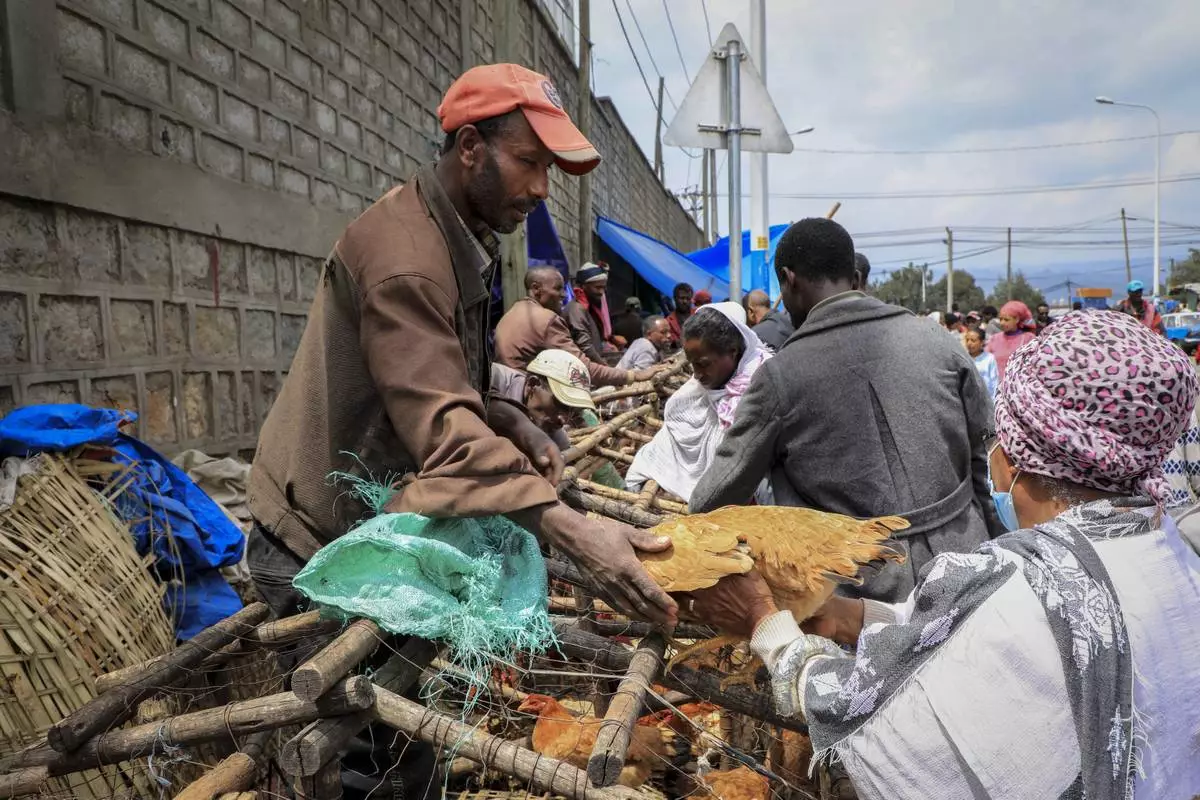
FILE -A man sells chickens in Sholla Market, the day before the Ethiopian New Year, in Addis Ababa, Ethiopia, Sept. 10, 2022. (AP Photo), File)
President Donald Trump moved to end a decades-old immigration policy known as birthright citizenship when he ordered the cancellation of the constitutional guarantee that U.S.-born children are citizens regardless of their parents’ status.
Trump's roughly 700-word executive order, issued late Monday, amounts to a fulfillment of something he's talked about during the presidential campaign. But whether it succeeds is far from certain as attorneys general in 18 states and two cities challenged the order in court on Tuesday, seeking to block the president.
Here's a closer look at birthright citizenship, Trump's executive order and reaction to it:
Birthright citizenship means anyone born in the U.S. is a citizen, regardless of their parents' immigration status. People, for instance, in the United States on a tourist or other visa or in the country illegally can become the parents of a citizen if their child is born here.
It's been in place for decades and enshrined in the 14th Amendment to the Constitution, supporters say. But Trump and allies dispute the reading of the amendment and say there need to be tougher standards on becoming a citizen.
The order questions that the 14th Amendment extends citizenship automatically to anyone born in the United States.
The 14th Amendment was born in the aftermath of the Civil War and ratified in 1868. It says: “All persons born or naturalized in the United States and subject to the jurisdiction thereof, are citizens of the United States and of the State wherein they reside.”
Trump's order excludes the following people from automatic citizenship: those whose mothers were not legally in the United States and whose fathers were not U.S. citizens or lawful permanent residents; people whose mothers were in the country legally but on a temporary basis and whose fathers were not citizens or legal permanent residents.
It goes on to bar federal agencies from recognizing the citizenship of people in those categories. It takes effect 30 days from Tuesday, on Feb. 19.
The 14th Amendment did not always guarantee birthright citizenship to all U.S.-born people. Congress did not authorize citizenship for all Native Americans born in the United States, for instance, until 1924.
In 1898 an important birthright citizenship case unfolded in the U.S. Supreme Court. The court held that Wong Kim Ark, who was born in San Francisco to Chinese immigrants, was a U.S. citizen because he was born in the country. After a trip abroad, he had faced denied reentry by the federal government on the grounds that he wasn't a citizen under the Chinese Exclusion Act.
But some advocates of immigration restrictions have argued that while the case clearly applied to children born to parents who are both legal immigrants, it’s less clear whether it applies to children born to parents without legal status.
Eighteen states, plus the District of Columbia and San Francisco sued in federal court to block Trump's order.
New Jersey Democratic Attorney General Matt Platkin said Tuesday the president cannot undo a right written into the Constitution with a stroke of his pen.
“Presidents have broad power but they are not kings,” Platkin said.
Not long after Trump signed the order, immigrant rights groups filed suit to stop it.
Chapters of the American Civil Liberties Union in New Hampshire, Maine and Massachusetts along with other immigrant rights advocates filed a suit in New Hampshire federal court.
The suit asks the court to find the order to be unconstitutional. It highlights the case of a woman identified as “Carmen," who is pregnant but is not a citizen. The lawsuit says she has lived in the United States for more than 15 years and has a pending visa application that could lead to permanent status. She has no other immigration status, and the father of her expected child has no immigration status either, the suit says.
“Stripping children of the ‘priceless treasure’ of citizenship is a grave injury,” the suit said. "It denies them the full membership in U.S. society to which they are entitled."
In addition to New Jersey and the two cities, California, Massachusetts, Colorado, Connecticut, Delaware, Hawaii, Maine, Maryland, Michigan, Minnesota, Nevada, New Mexico, New York, North Carolina, Rhode Island, Vermont, and Wisconsin joined the lawsuit to stop the order.
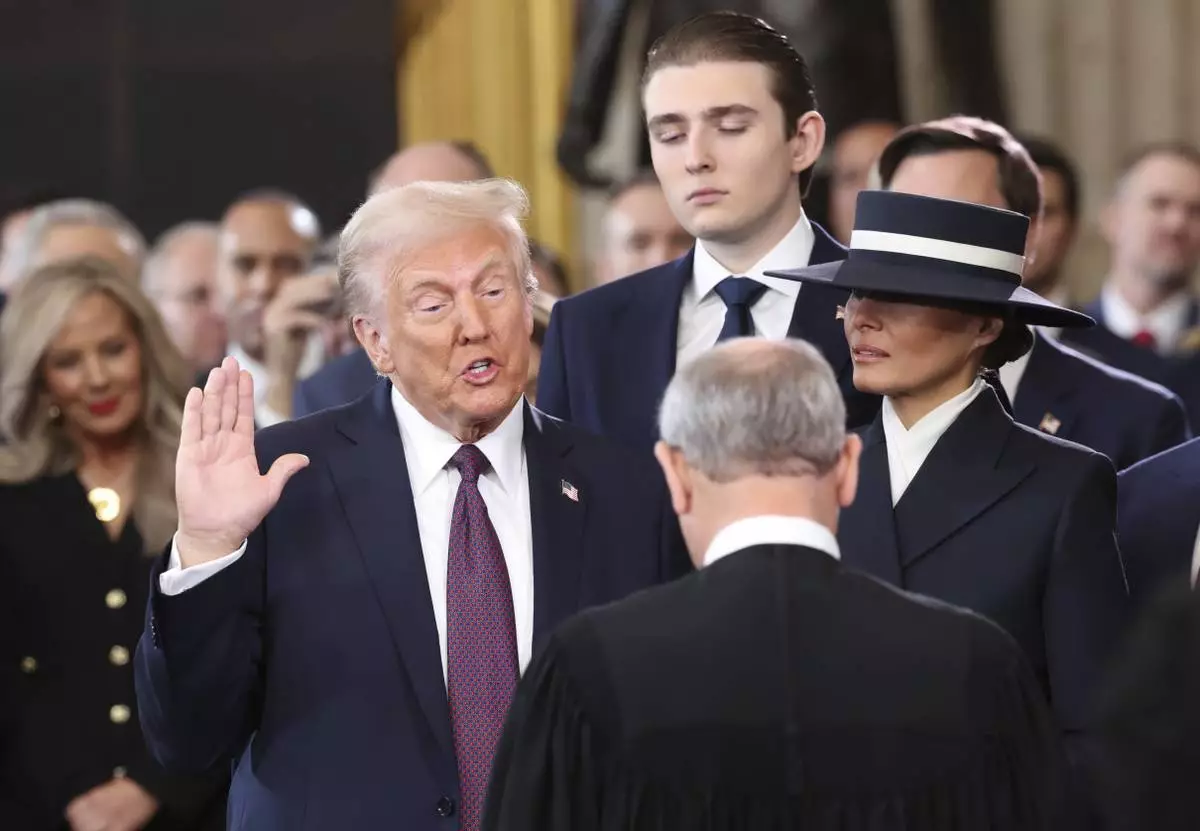
President-elect Donald Trump, from left, takes the oath of office as Barron Trump and Melania Trump watch at the 60th Presidential Inauguration in the Rotunda of the U.S. Capitol in Washington, Monday, Jan. 20, 2025. (Kevin Lamarque/Pool Photo via AP)
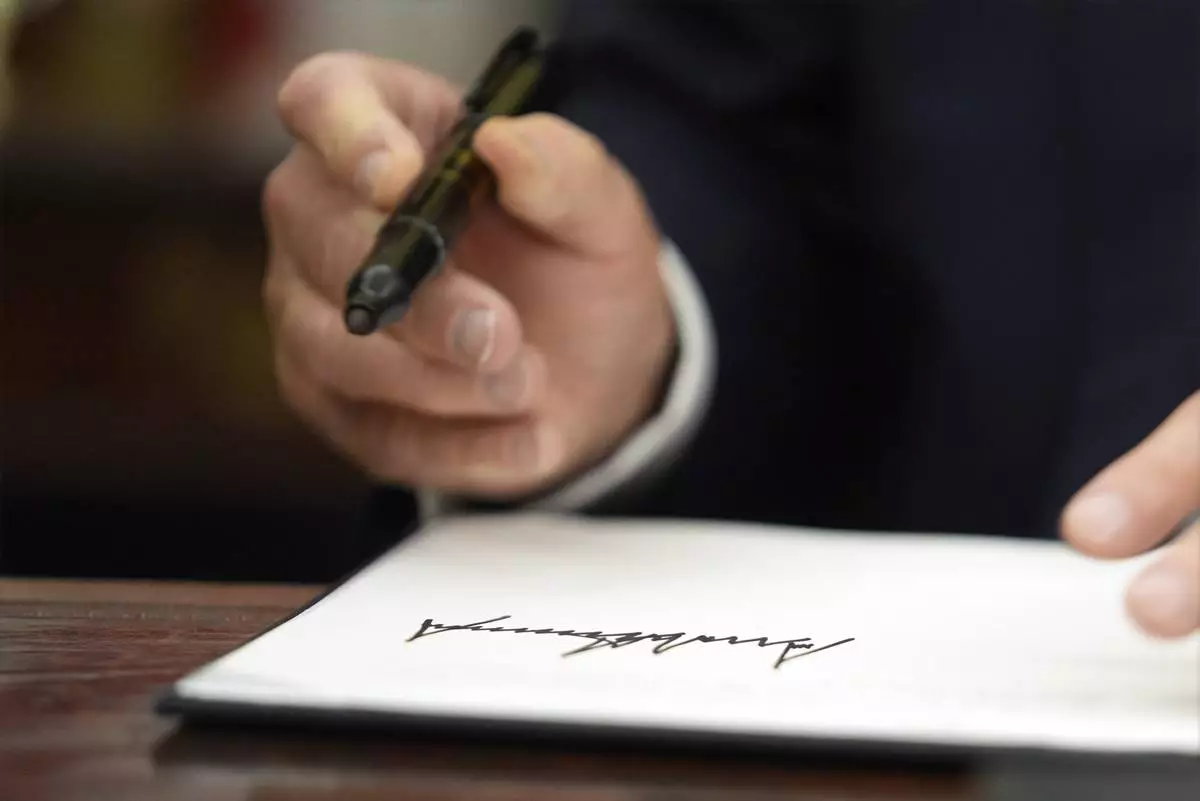
President Donald Trump signs executive orders in the Oval Office of the White House, Monday, Jan. 20, 2025, in Washington. (AP Photo/Evan Vucci)
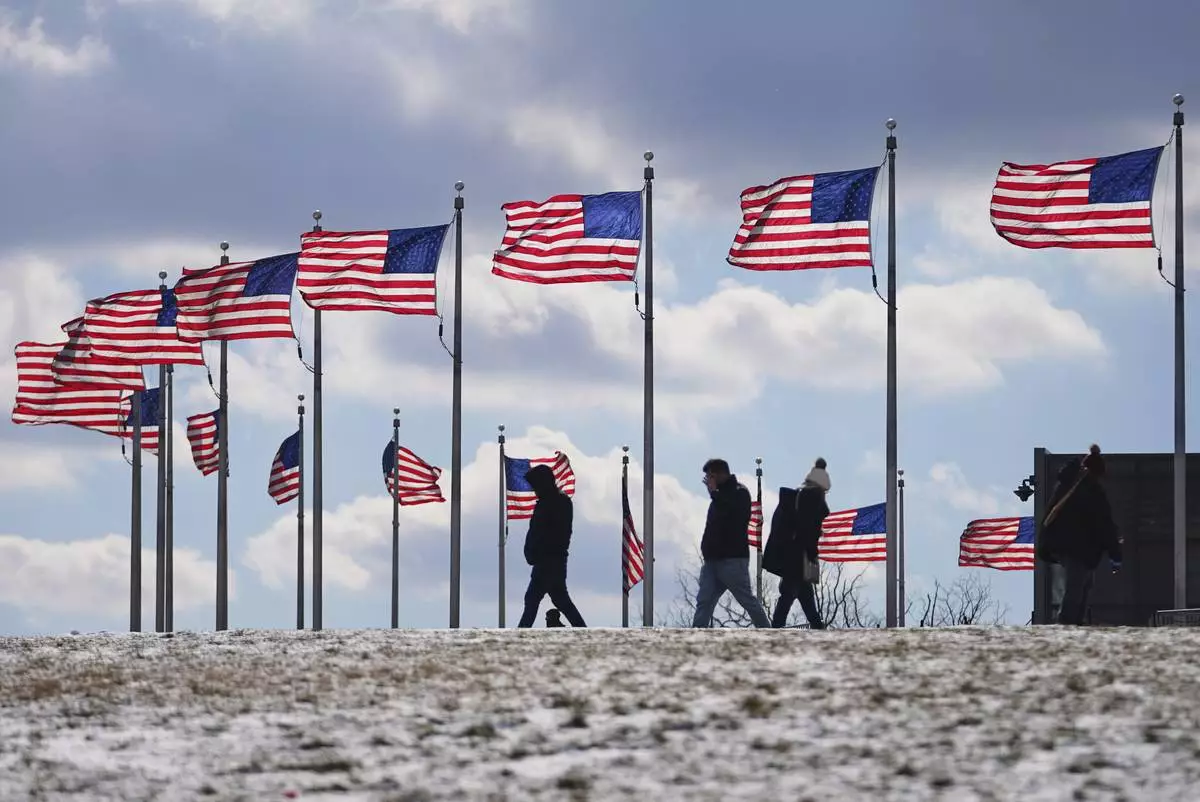
U.S. flags around the Washington Monument are at full staff during the 60th Presidential Inauguration, Monday, Jan. 20, 2025, in Washington. Flags are supposed to fly at half-staff through the end of January out of respect for former President Jimmy Carter, who died Dec. 29, 2024. (AP Photo/Julio Cortez)
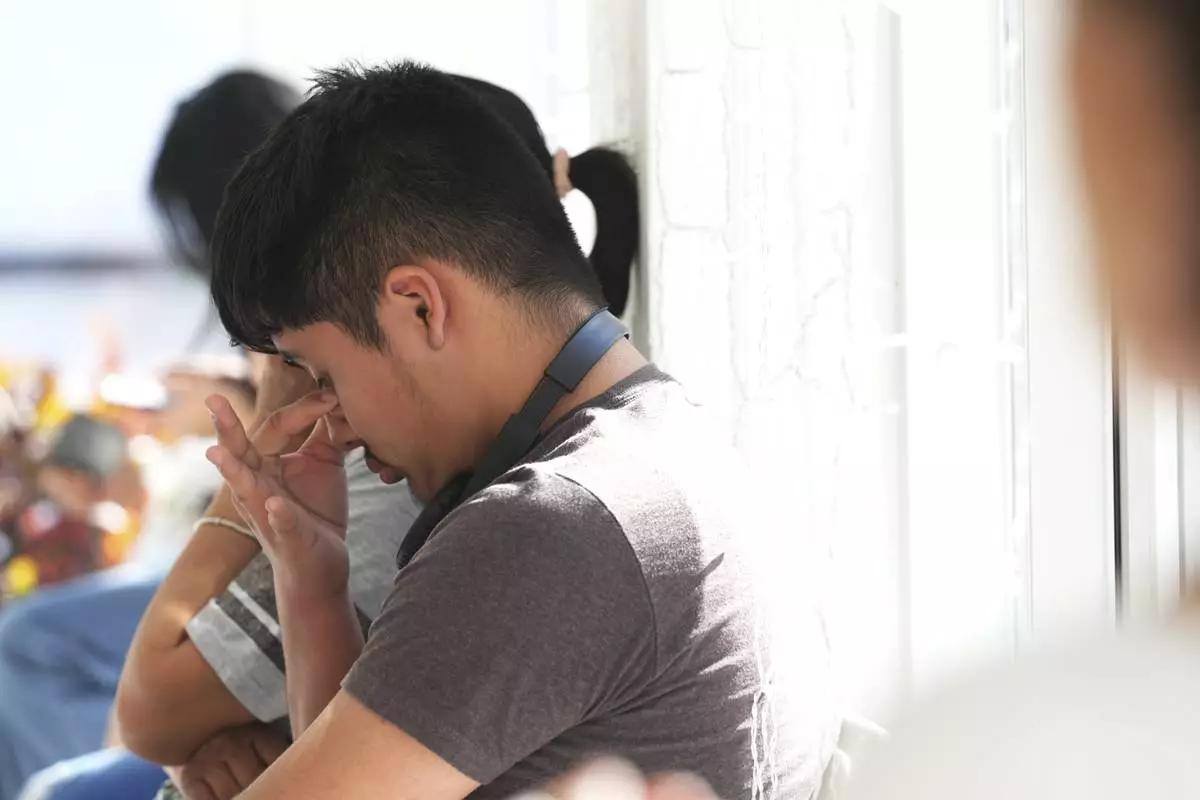
A young man reacts to information on how to prepare for the upcoming changes to undocumented families living in the U.S., Sunday, Jan. 19, 2025, in Miami. (AP Photo/Marta Lavandier)
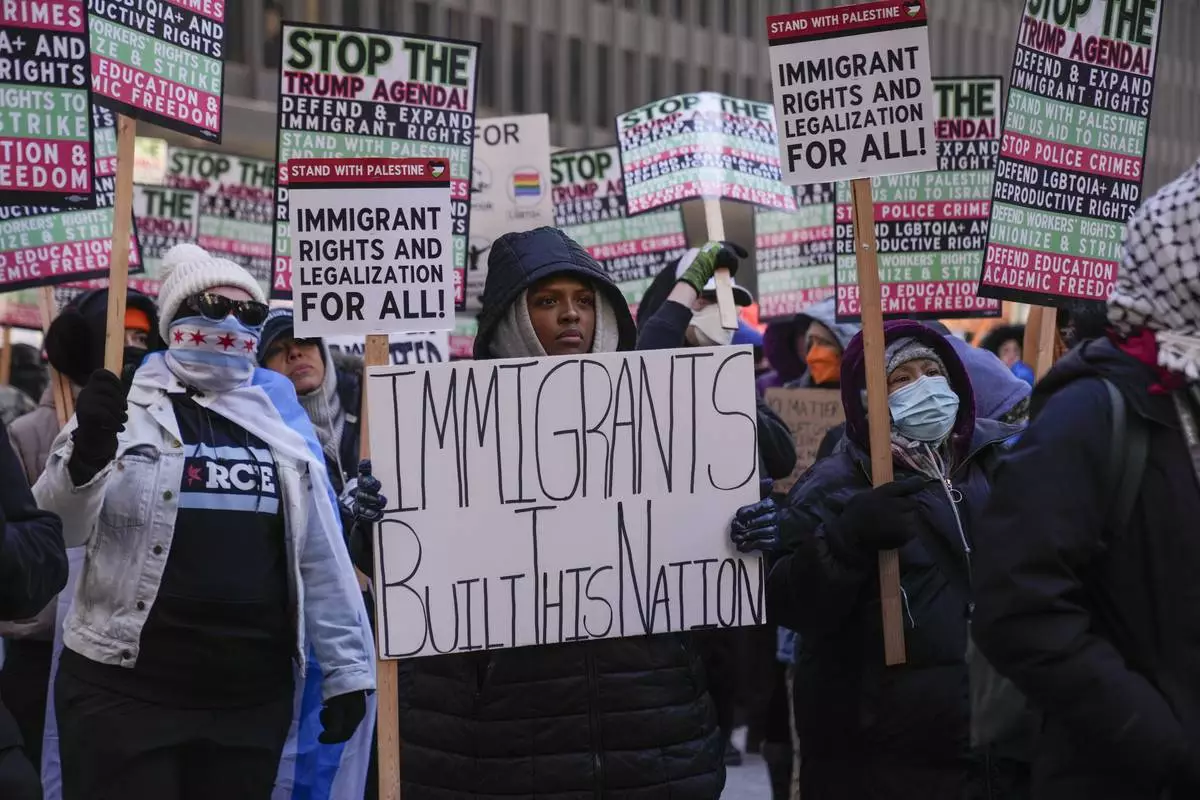
Sonia Rosa Sifore and other anti-Trump protesters gather in Federal Plaza to rally for a number of issues, including immigrant rights, the Israel-Hamas war, women's reproductive rights, racial equality and others, on the day of President Trump's Inauguration, Monday, Jan. 20, 2025, in Chicago. (AP Photo/Erin Hooley)
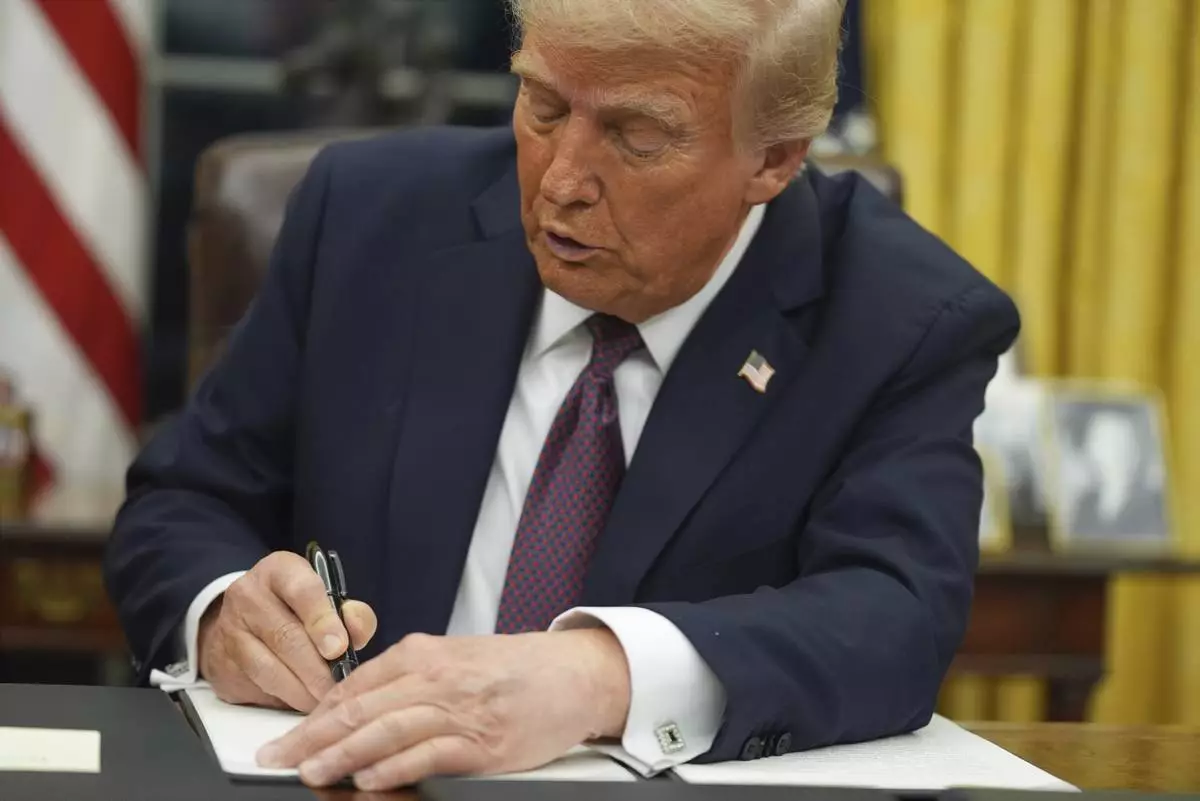
President Donald Trump signs an executive order on birthright citizenship in the Oval Office of the White House, Monday, Jan. 20, 2025, in Washington. (AP Photo/Evan Vucci)











